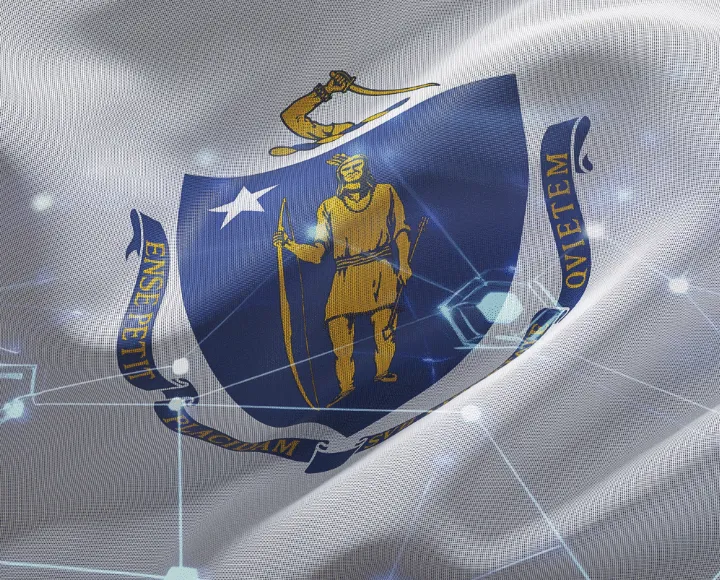
Overview
Signed by Governor Maura Healey on November 20, 2024, the Mass Leads Act authorizes nearly $4 billion in capital funding to strengthen Massachusetts’ leadership in life sciences, ClimateTech, artificial intelligence (AI), and advanced manufacturing. The legislation also renews key infrastructure and regional development programs that support site selection and capital investment across the Commonwealth.
Key Takeaways
Life Sciences
- Establishes a Life Sciences Breakthrough Fund with cumulative authorizations totaling approximately $580 million, which encompasses multiple provisions administered through the Massachusetts Life Sciences Center (MLSC). Rather than representing a single line-item allocation, this amount reflects the aggregate funding dedicated to a range of initiatives—including investments in biotech, pharmaceutical innovation, and R&D infrastructure—under the broader MLSC framework.
- Increases the annual Life Sciences Tax Credit cap from $30M to $40M, extending support for expansions, workforce training, and facility upgrades
- Expands eligible projects to include health equity, biosecurity, digital health, and AI-driven medical technology, broadening collaboration opportunities
Climatetech Incentives
Launches a new ClimateTech Tax Incentive Program to attract clean energy and decarbonization projects, including:
- Investment Credit: Up to 50% of qualified capital costs (≥$5M investment; job creation required)
- Research Credit: Modeled on IRC §41, tied to qualified R&D
- Jobs Credit: Refundable; requires at least five net new FTEs
- Sales & Use Tax Exemption: For qualifying ClimateTech purchases and materials
- Program cap: $30M annually, with refundable credits payable at 90%
- Marks a shift toward performance-based, statutory incentives mirroring competitive state programs
Artificial Intelligence & Robotics
- Creates a $103M AI Capital Grant Program, including a $3M earmark for the Worcester Financial Innovation & Research Center
- Adds $25M for robotics research and intelligent manufacturing initiatives
Quantum & Advanced Manufacturing
- Provides $115M for quantum innovation hubs and technology consortia, including new investments in the Pioneer Valley
- Promotes R&D partnerships across advanced materials, AI, and high-performance computing
Infrastructure & Regional Development
- Reauthorizes major programs that enhance site readiness and community vitality:
- MassWorks Infrastructure Program – $400M
- Rural Development Program – $100M
- Seaport Economic Development Council – $100M
- Public Library Construction – $150M
- Adds funding for broadband, cultural facilities, downtown revitalization, and tourism development
Data Centers & Technology Investment
- Introduces a new Qualified Data Center Sales and Use Tax Exemption covering equipment, software, power, and construction materials
- Certification to be defined by the Executive Office of Economic Development (EOED) and Department of Revenue (DOR)
- Intended to attract high-capital data and AI infrastructure investments, complementing the state’s life sciences and ClimateTech clusters
Permit Extensions
- Automatically extends development approvals issued between January 1, 2023 – January 1, 2025 for two years, offering flexibility for delayed or multi-phase projects
- Expands protection for projects already in site preparation, reducing zoning and entitlement risk.
Background
The Mass Leads Act advances the administration’s “Team Massachusetts” strategy, aligning tax incentives, capital investment, and workforce programs to maintain the Commonwealth’s global edge.
- The ClimateTech credits mark a deliberate move away from grant-only funding toward statutory, performance-based incentives, similar to models in North Carolina and Texas
- The life sciences expansion extends a 20-year legacy of investment that established Massachusetts as a biotech hub—now integrating health equity, biosecurity, and AI to reflect emerging industry convergence
- The data center exemption and permit extensions aim to maintain investment momentum amid rising construction costs and extended project timelines
Implications
For Manufacturers & Pharmaceutical Companies
- The $580M Life Sciences Fund supports continued expansion, workforce development, and modernization
- Broadened eligibility (biosecurity, AI, digital health) enables new project types and collaborations
- Refundable ClimateTech credits enhance liquidity and reduce capital risk for modernization and decarbonization projects
- Overlaps between clean energy, AI, and pharma manufacturing may qualify for multiple incentive streams
For Site Selectors & Real Estate Teams
- Renewed MassWorks, rural, and seaport programs strengthen infrastructure and site-readiness for new or phased developments
- Permit extensions to reduce zoning risk and improve flexibility for projects facing delays
- Together, these measures improve credits and incentives negotiation leverage for manufacturing and distribution facilities
For Data & Technology Operators
- The data center exemption enhances competitiveness for AI, quantum, and high-performance computing projects
- Coverage includes major cost drivers (equipment, software, energy, construction)
- Early engagement with EOED and DOR will be key once certification rules are released
Strategic Outlook
- Massachusetts is emerging as a cross-industry innovation hub, linking biotech, ClimateTech, AI, and advanced manufacturing through coordinated incentives and infrastructure
- Expect greater competition for state incentives and broader collaboration opportunities across converging sectors
- Early alignment with rulemaking will be crucial for maximizing credit value and project eligibility

TAX CREDITS AND INCENTIVES DONE RIGHT
Partner with DMA to capture emerging incentives under Massachusetts’ new economic development programs.